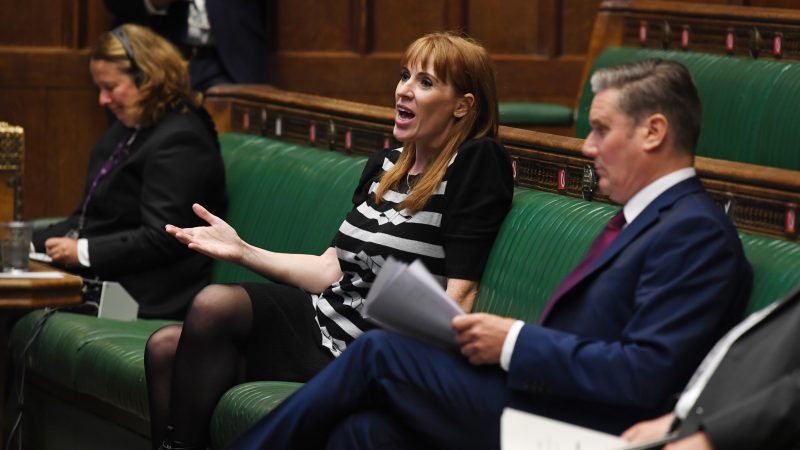
Angela Rayner has declared that Labour will “fundamentally change working practices for the better” and “make flexible working a force for good” for everyone as part of the party’s plan to deliver a “new deal for working people”.
Following the launch of Labour’s new deal for working people campaign on Monday, Labour’s deputy leader and Shadow Future of Work Secretary has called on ministers to ensure everyone benefits from flexible working after the pandemic.
“Flexible working is not just about working from home, it is about a fundamental change to working practices to improve the lives of all working people. Flexible working means work fitting around people’s lives, not dictating their lives.
“Labour will make flexible working a force for good so that everyone is able to enjoy the benefits of flexible working, from a better work-life balance to less time commuting and more time with their family,” Rayner said.
Recent research from the TUC found that 82% of workers want to work flexibly in the future, rising to 87% among female employees. Yet 71% of flexible working requests were rejected in 2020, up from 53% the previous year.
Employees currently have the right to request flexible working, but businesses are only obliged to handle the requests in a ‘reasonable’ manner and do not have to accept the request even if such an arrangement is possible.
Rayner added: “The ‘new normal’ after this pandemic must mean a new deal for all working people based on flexibility, security and strengthened rights at work.
“The right to flexible working will change our economy and the world of work for the better, stop women losing out at work or even dropping out of the workforce altogether, end the sexist assumption of dad being at work in the office and mum looking after the kids at home and improve the lives of millions of workers.”
According to the TUC, ‘flexi-time’ is the most popular flexible working practice, which allows the employee to choose their start and finish time. Labour’s plan includes flexi-time as well as other forms of flexible working. The party is proposing:
- “The right to flexible working for all workers as a default from day one of employment and an accompanying duty on employers to accommodate this where there is no reason a job cannot be done flexible and remotely;
- “The right to flexible working to include: flexible hours (‘flexi-time’), compressed hours, staggered hours, annualised hours, and flexibility around school runs and other family and caring responsibilities, including childcare during school holidays;
- “Ending one-sided flexibility so all workers have stable, secure employment and mutually-agreed predictable working hours and shift patterns so they can plan their lives;
- “The ‘right to switch off’ and disconnect from work at home outside of working hours;
- “Greater access to workplaces, including to home workers, for trade unions to ensure fair flexibility for all is delivered through a collective voice for all staff, including those who are working flexibly or remotely.”
Labour MP Tulip Siddiq introduced a private members’ bill to parliament last month to give all workers a right to flexible working from the first day in a job and to make sure that employers advertise flexibility in job postings.
A 2019 government study found that jobs advertised flexibly attracted 30% more applicants than those that did not. RCM research showed 76% of midwives who had left their jobs could be persuaded to return if given the chance to work flexibly.
Downing Street confirmed last month that the government is considering introducing a right for employees to request home working specifically, and a spokesperson said a flexible working task force was examining how best to proceed.
But they stressed that there would be no legal right to work from home, reporting that the Prime Minister Boris Johnson still believes that there are benefits to working in the office, such as in-person collaboration with colleagues.




More from LabourList
‘Unity or division’: Starmer’s message to voters in Gorton and Denton
Almost half of Labour members oppose plans to restrict jury trials, poll finds
‘How Labour can finally fix Britain’s 5G problem’